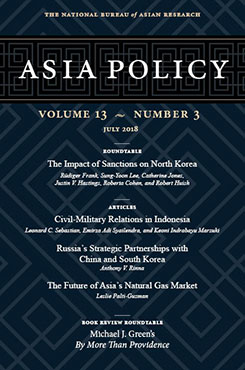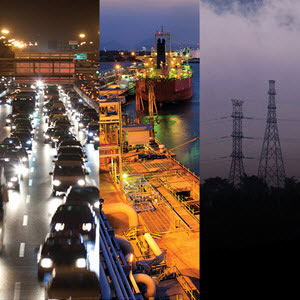The Future of Asia’s Natural Gas Market
The Need for a Regional LNG Hub
This article examines how the liquefied natural gas (LNG) market functions in Asia and argues that an opportunity exists for Asia to develop a regional trading hub for LNG.
EXECUTIVE SUMMARY
MAIN ARGUMENT
Despite being the world’s largest LNG-consuming region and the fastest-growing LNG market, Asia still lacks an LNG trading hub and associated pricing benchmark that reflect the region’s gas market fundamentals and send a reliable price signal for imports. Recent changes in the LNG market have improved conditions for the emergence of one or more hub-based prices in Asia as an alternative to oil-indexation, the prevalent LNG pricing structure in the region. In addition, an oversupplied market has created a common need between buyers and sellers to find new ways to trade and finance LNG at a time of demand uncertainty and investment shortfalls. These developments not only would make the LNG market more open, transparent, and competitive by facilitating physical exchanges and hedging but also would bring broader benefits, including greater regional integration, enhanced energy security, and greener economic development. Singapore is well-positioned to serve as an LNG hub, given its geographic position; established trade, legal, and financial ecosystem; and progress toward assuming this role.
POLICY IMPLICATIONS
- Easier gas procurement through more transparent prices and open markets will boost the environmental benefits of LNG by increasing its use in large polluted cities and accelerating coal-to-gas switching.
- A trusted Asian LNG hub and price marker would make regional gas markets more efficient and responsive, which would address government concerns about supply security and help resolve the current investment paralysis among risk-averse utility companies.
- A regional LNG hub could create greater economic integration and cooperation between Asian countries as it would encourage intraregional trade and infrastructure synergies while setting a shared political agenda to make the fuel more accessible.
About Asia Policy
Asia Policy is a peer-reviewed scholarly journal presenting policy-relevant academic research on the Asia-Pacific that draws clear and concise conclusions useful to today’s policymakers. Asia Policy is published quarterly in January, April, July, and October and accepts submissions on a rolling basis. Learn more



